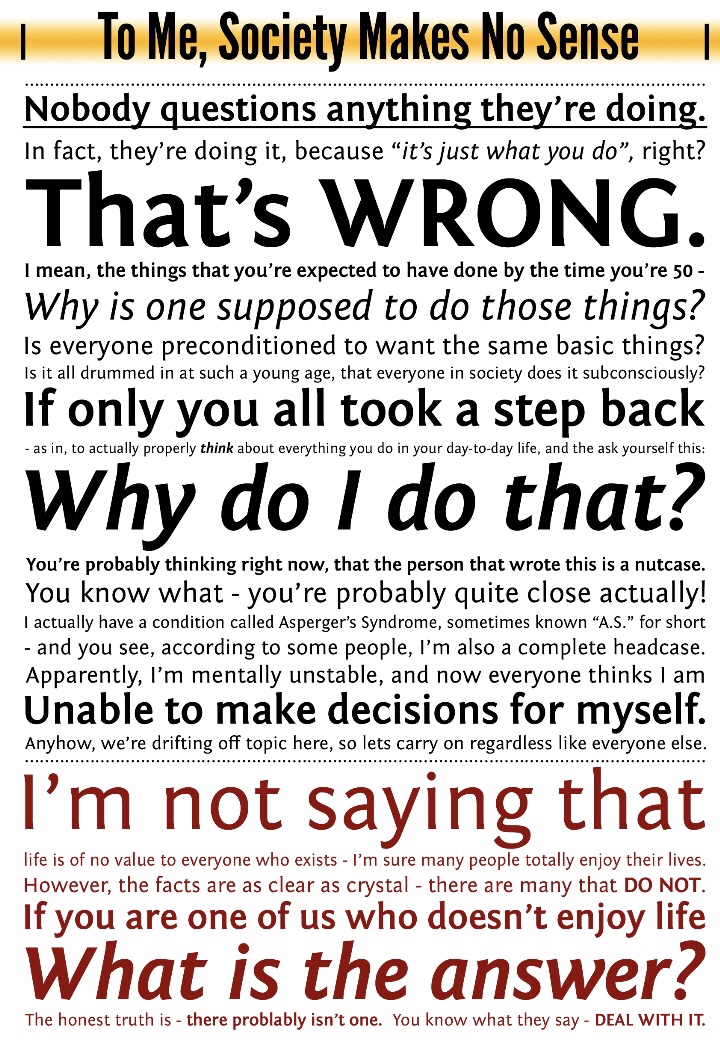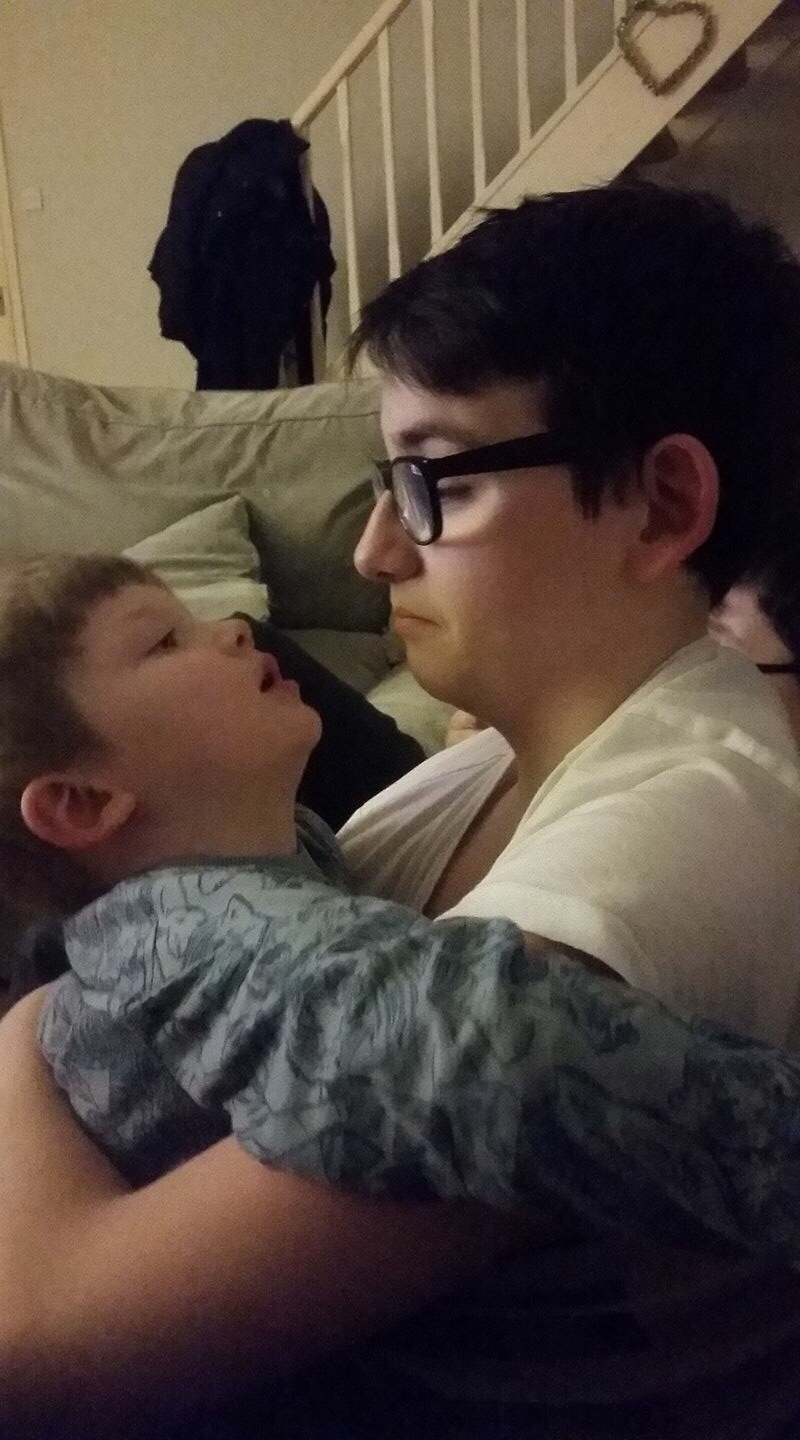I’m not sure why, but all of a sudden I had the urge to write… you see I have been up all night and I’m covered in bruises and bite marks… but it’s ok because the person that does it to me isn’t doing it to hurt me, he’s doing it because he loves me and this is how he shows it.
Unusual I know but let me introduce you to Sami and hope that this may spread some awareness of autism so the world becomes a bit more understanding for him in the future.
On the 27th May 2015 I gave birth to a beautiful second son and he was immediately different from my first, he screamed so much we were put in a separate ward, I thought wahey upgrade!
Sami was very loud, he spent most the day screaming, he could not be apart from me and my family felt very unsure about looking after him- so they didn’t and 4 years they still do not feel able to look after him for more than a few hours although they do love him with all their hearts.
6 months in I remember shouting up at the ceiling asking what I did wrong, why isn’t he happy? (sorry neighbours). My first born had just started nursery and was a bit behind with speech and getting over excited easily, at least that’s what I thought, but despite the nursery trying their hardest to show me something was different with Aymane I was so wrapped up in my clingy baby that I did nothing. To be fair my health visitor believed Aymane was just over excited too.
At 18 months my Sami started talking; he said ‘mum’ and ‘dad’ and even his cousins name ‘Jack’ but then within a month it was gone and he has never said a word since.
He started to try find other ways to communicate, if he wanted a drink he would throw a cup at me, if he wanted food he would guide my hand to the fridge but if there was something he wanted and I couldn’t guess it he would get so frustrated and start hitting his head on the wall or throw himself to the floor over and over again.
At the 2 year review the wonderful NHS nursery nurse said “I’m sorry but we have some concerns here, we will come back out and visit you” and true to their word every month I saw a health visitor and the nursery nurse.
Let me thank them right now because without their 2 years of constant support I honestly don’t know how I would have coped, they were angels.
Sami does not sleep, he just cant, maybe he will get 1 to 2 hours a night but then he’s up and when he is up, the whole family must be up.
When it was time for nursery they were straight with me from day one, Sami needs assessing. I already knew at that point that Sami was different, on the walk down to nursey he would try to run in the road, he would lick car tyre and fence posts and he would take peoples solar lights out their gardens so he could lick them.
At 3 Sami saw a paediatrician and we sat there for half an hour, I told him about Sami not sleeping, smearing his own poo on the walls, lining up anything that can possibly be lined, having absolutely no danger awareness, not being able to talk, eating inedible objects, chewing on things that should not go anywhere near your mouth, cracking his teeth on rocks and he diagnosed him there and then:
AUTISM
I think I cried for days, now, I feel silly about that.
Sami is a gift, a gift no one else is lucky enough to have. Sami loves me and he shows it intensely, he’s stuck to me like glue, his smile melts my heart and when he has sensory overload no one but mummy will do. You need to squeeze him so tight and block out this busy world and the feeling that I am this angels world, is one I was always treasure.
I went to the library the following day, I read everything I could, soon it became difficult to leave Swanscombe because Sami likes routine. I believe he feels safe in his home town because Swanscomber’s are kind, they are accepting, a community I’m proud to not only belong to but have the honour of being their borough councillor.
I set up an autism play group in Swanscombe because I was tired of going out and being judged. Too many times I have had people tell Sami he’s too big for a pram and to get out and walk, or ask him what’s wrong with him.
Sami cant talk, if you get in his face and ask him questions he cant respond to, not only are you frightening him you are building up his anxiety so when he lashes out at you he’s not being naughty, he is in a meltdown.
When Sami is happy he flaps like a bird; it’s called Stimming.
He’s quite happy in his mobility buggy rocking backwards and forwards watching the trees and enjoying nature when all of a sudden a face is there, the face is talking to him, he doesn’t know you and he doesn’t know what you’re saying but the more he doesn’t respond the louder you get. Mummy tells you to please give him some space as he’s autistic and more often than not mummy gets told “oh he will grow out of it we are all a bit autistic.”
He most certainly wont!
He was born this way, he’s perfect. I feel so sorry for those wonderful autistic children who had to mask their autism to try and conform with what is seen as normal.
Sami is now 4 and my baby is off to a wonderful special needs school in September called Ifield, where he will learn Makaton and we might eventually be able to communicate with each other.
We have a bright future ahead for him, it may not be the one I imagined but he’s getting all the help he deserves thanks to the wonderful NHS and Cygnets pre school.
My hope for Sami is that people become aware of autism, he’s not naughty, he’s not stupid. He is truly amazing, battling sensory overload everyday!
My eldest is my superhero, he adores Sami and sees him as special not odd and most the children around us do too, it fills my heart up seeing Swanscombe accept and include Sami.
We even get birthday invites from Aymanes friends for Sami, which is something I never thought would happen.
Aymane is only just diagnosed with ADHD, I missed it, I never noticed because Sami’s care is so intense. I realised what Aymane’s flapping was when I learnt about Sami but his school do not see Autism in him so he just got diagnosed with ADHD.
I have one child that talks too much and one that doesn’t talk at all. I also have the most perfect children, they are my biggest challenge, my greatest achievement in life. They made me stronger than I can ever imagine. I can walk in to a council chamber with no sleep, covered in bites and bruises and think “I’m an autism mum no opposition can faze me. “
Although I have to admit I do occasionally lock myself in the bathroom just for some peace.
My point in writing this is because, A I needed to get it out and B I would really appreciate people learning about Autism.
It’s a hidden disability, I also have a hidden disability and I find the judgement is sometimes harder than the actual condition.
If you see me being bitten by my child his not being naughty, something has made him anxious he needs to be close to his mummy, he needs to feel mummy, be completely enveloped by mummy so that he is safe again. I know it sounds strange but its part of Autism.
My boy is a superhero and I am a lucky mum.


